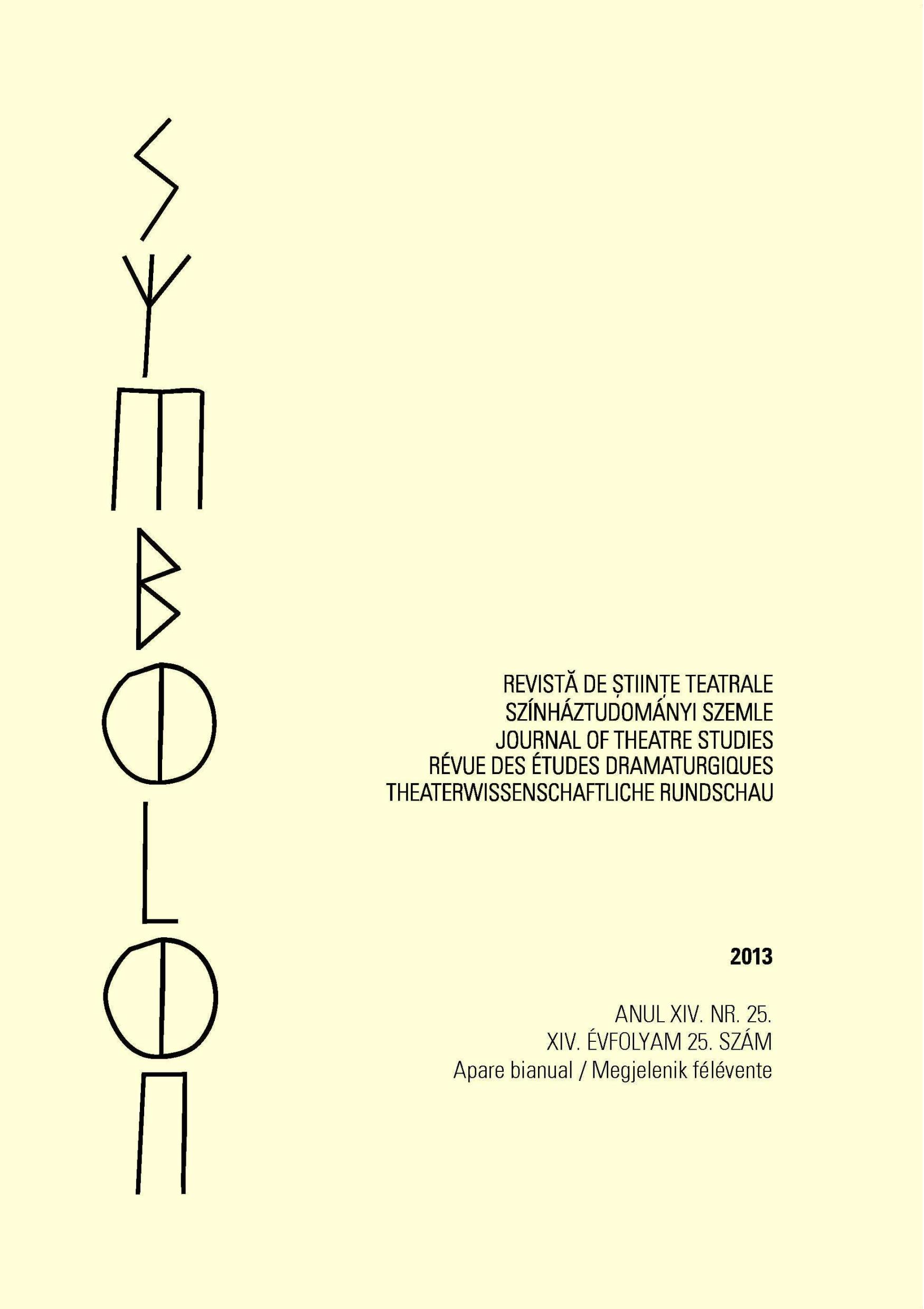The Memory of the Nation
The Memory of the Nation
Author(s): Magdolna JákfalviSubject(s): Theatre, Dance, Performing Arts
Published by: UArtPress - Editura Universității de Arte din Tîrgu Mureş - A Marosvásárhelyi Művészeti Egyetem Kiadója
Keywords: theatre; memory; nation; history; historiography
Summary/Abstract: Staging Weöres Sándor's play "Octopus" remained an utopistic plan for years, due to the workings of the theatrical structure during the state socialist era. It is a pseudomyth, involving baroque theatrical machinery and half a hundred characters, that cannot be interpreted as a historical play because of its fictionality, and yet its staging was hindered by the supposed similarity between the constructed theatrical world and the reality of the seventies.The starting point of my presentation is a sentence from a contemporary review: "the question of how we read the play ultimately depends on how we read reality". Projecting the constructed nature of reality and of the play on each other, or even assuming that nature, is a clear statement in the history of ideas. The wealth of reviews and studies concerns the early realization (contemporary with the play) that historical consciousness is a construct just like a theatrical text. Weöres's supposedly mythical, epic, hallucinatory legend is in fact demonstrating another method of representing reality, a possible alternative to psychological, and later to socialist realist writing techniques.Hungarian theatrical history is rediscovering the theatrical creations of past decades through the medium of reviews, interviews and memoirs. The process of restaging, rewriting and reinterpreting a play shapes our approach to historicity as well, meaning that the creations themselves are not the sole subject of our inquiry: we must also research the ways they could be discussed in public speech.The example we will analyze is Weöres's six-hour-long play. Zsámbéki Gábor staged it three times, thus not only facilitating the onstage presence of the play, but also making it possible to reshape the literature written on Weöres. Reordering structures of memory is a process lasting decades, so the new literature should focus on the minor aspects of description instead of making value judgments, it should read the political, communal language instead of the language of aesthetics.
Journal: SYMBOLON
- Issue Year: XIV/2013
- Issue No: 25
- Page Range: 80-84
- Page Count: 5
- Language: English

